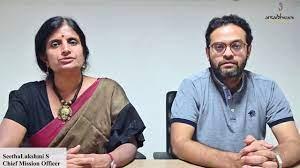
Conceived & Moderated by Seethalakshmi S. and Rahul Nandan
The fourth edition brought together renowned experts across diverse fields to spark off a meaningful discussion on Making Tax Less Taxing & More Paying in India particularly for the common taxpayers of the country who diligently contribute towards nation building year after year.
I. Snapshot of the freewheeling conversations
“Our heartfelt appeal to the government, as a key step forward towards making tax less taking and more paying, is to create a mechanism for taxpayers to have a say in the allocation and disbursement of tax revenues.”
Dr. B S Ajaikumar
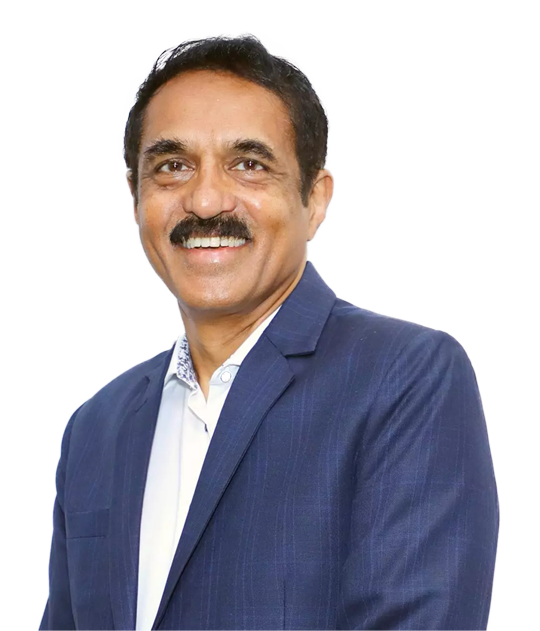
Having practised oncology across US and India, I am intrigued by the striking contrasts between these two countries in the specific context of taxation. Almost 80 percent of the population in the US pays tax, and the elected representatives are visibly concerned about the larger interests of taxpayers given the high degree of public accountability. The justification for every proposed bill is duly elaborated by the elected representatives in respective constituencies and passed only after a wilful buy-in of common taxpayers. If the latter feel the proposed move is an additional burden devoid of any measurable value, they have the right to vehemently oppose it and stop it from being enacted. In fact, inviting the wrath of taxpayers adversely affects the future electoral prospects of the representatives.
The scenario in India is quite the opposite. Here, being a non-taxpayer is an advantage as the majority of voters do not pay taxes. Many among them are not bothered about the larger good; they focus solely on their personal interests. Those who diligently pay taxes have no say whatsoever in the policy making and implementation of various tax matters. I wish to make it explicitly clear that our grassroots movement calling for tax reforms is not aimed at winning any tax concessions or rebates. We are proud to be tax payers and feel duty-bound to do our bit for nation building. Yet, it is quite disturbing to note how tax payers’ money is being spent on non-productive endeavours in India. Almost 1/3 rd of the revenue collections are used for interest payments alone, which is a matter of grave concern. Worse, the elected representatives can afford to ignore the interests of honest taxpayers, given that the latter are a tiny minority and not part of the proverbial ‘vote bank’. How to address this serious flaw in the system is the moot point of our conversations. Before we fix that, we must also consider how certain citizens of this country are abusing tax laws and taking unfair advantage of the glaring loopholes. I know of several wealthy professionals in Shivamogga, an Areca nut producing belt of Karnataka, who earn significant tax-free money. Some of them are doctors earning as much as Rs 10 to 15 crores of tax-free money. They use their deep pockets to buy plots and escape being taxed on the humungous agricultural income as it is tax-exempt by default. These tax evaders invariably swear by lavish lifestyles, drive swanky cars, and splurge on fancy shopping and hotelling, completely devoid of any sensitivity towards the real issues plaguing India.
A large chunk of potentially taxable money hence doesn’t enter the system which remains perennially deprived of funds for crucial welfare projects in education, health, and infrastructure. Unlike popular perception, India is not a poor country. It has ample resources at its disposal but the disbursement is appalling, seriously flawed and grossly unfair. Only 1 percent of the population is controlling 80 percent of the nation’s wealth. Our heartfelt appeal to the government, as a key step forward towards making tax less taking and more paying, is to create a mechanism for taxpayers to have a say in the allocation and disbursement of tax revenues. We do not demand any special privileges other than the fundamental right to voice our concerns and be heard. Even being so spartan a wish, it may still be utopian in nature for all we know, but that should not deter us from taking baby steps in the right direction as a Pan-India group committed to serve the larger cause of the nation. All of us can’t be like the maverick Henry David Thoreau who refused to pay taxes in defiance of what he called an unjust war against Mexico fuelled by the sole intention to expand slavery, but we as a group of like-minded activists can definitely raise a voice loud enough to be heard by the powers-that- be.
“We need information ammunition to launch advocacy, not merely knowledge ammunition.”
Ashwin Mahesh
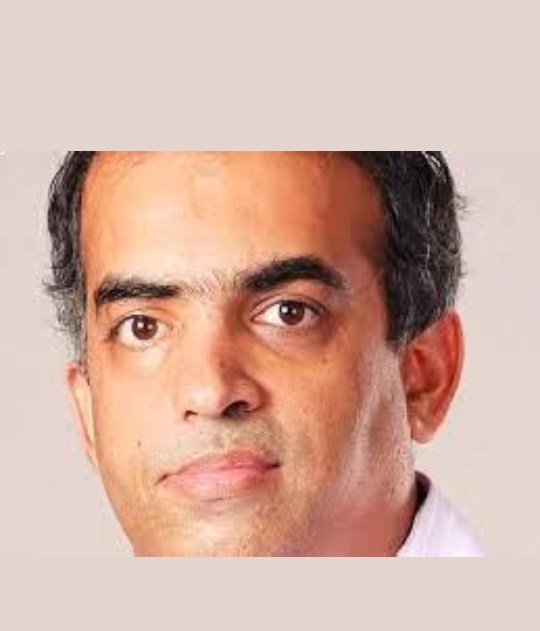
I would rather come to the moot point with a rapid fire question: Given a choice, how much of your taxes would you like to give to the centre, how much to the state and how much to the local government? Each of us may have different percentages in mind for the three, but in actual practice, irrespective of the choice, the local government hardly gets 2 percent of the total share while national and state governments get about 40 percent and 50 per cent respectively. We have democratically arrived at a situation where the overwhelming majority want something, but the exact opposite happens in actual practice. We have an asymmetric problem at hand in Indian taxation, and not surprisingly, both Centre and State governments have no interest whatsoever in any conversation around changing the status quo, as they capture the bulk of the taxes and benefit from the lopsided mechanism. Finance commissions tend to toe the line of the governments that appoint them which impacts their recommendations. At the same time, taxpayer expectations have nothing to do with their tax status or the quantum of taxes they pay, given that there are so few taxpayers. We have come to a stage where taxpayers have stopped expecting anything in return from the government.
However, there are a few hints of change emerging at the local level. Let’s take a very representative example of gated communities. Invariably, the quantum of maintenance fees we pay to the residential society every month is roughly the quantum we pay to the municipal authority on annual basis. Obviously, the services that our gated communities provide are superior in terms of both volume and value, compared to what the local authority does for us. We clearly need to lay the foundation of any conversation around advocacy of tax reforms by finding out and throwing light on three elementary aspects: one, how much do people pay and to whom, or rather how much they should pay and to whom; two, why do we pay taxes; and three, how easy is it to pay tax. In the context of the last mentioned point, the government has made it our responsibility to collect tax from others on its behalf, which needlessly makes us vulnerable middlemen in the whole process of tax collections. At the municipal level, the tax collection is glaringly incomplete and inadequate, as only 50 precent of the people pay taxes. Hence, the data on municipal tax collections is not made public. Technology can easily weed out this problem provided we use it to our benefit and ensure ease of paying taxes for all citizens. Laying the foundation for tax advocacy is crucial to our prospects of being heard by the government, else our demands will be sidelined on some pretext or the other. The government has at best been doing justice administration, not judicial reforms. A proper foundation for tax advocacy may pave the way for judicial reforms. We need information ammunition to launch advocacy, not merely knowledge ammunition.
“A painful aspect of tax collection process is the absence of the trust quotient, which is integral to the motivation of the tax payer to pay taxes.”
Bhaskar Rao
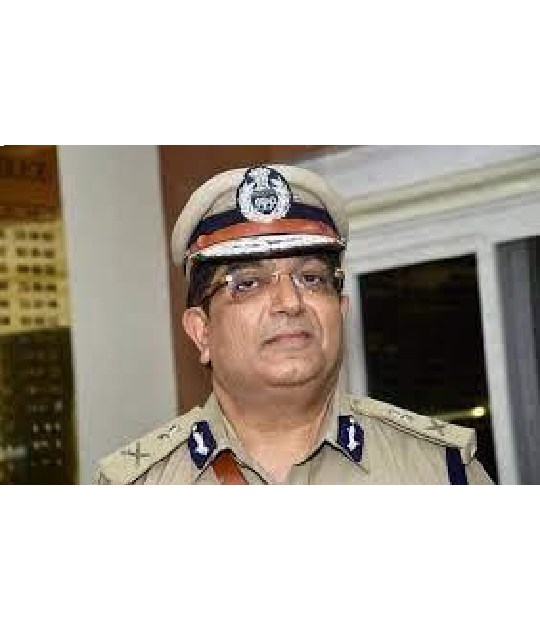
One of the tenets of taxation is that it is not quid pro quo. It does not however mean that we have no right to know how the tax collected is being disbursed. A painful aspect of tax collection process is the absence of the trust quotient, which is integral to the motivation of the tax payer to pay taxes. Even honest, transparent transactions of land sale are often subjected to show cause notices by default, which needlessly make the whole process cumbersome and elongated. Secondly, tax officers and tribunals make umpteen changes in laws and rules, and the hearings under different officers span across several years, whereby interpretations and rulings drastically differ over time and hence challenged and counter-challenged in a never-ending loop. The whole system has been made intricate only to help different entities thrive in the complexity, including lawyers, chartered accountants, tax officers, and tribunal authorities. Another sad reality is that public representatives play no role in demanding accountability in taxation or demanding an explanation on crucial matters like tax disbursement for unproductive purposes. No politician is ever penalised for pilfering money and this sets a wrong precedent. Consequently, there is seething anger among the masses, to the point of avoiding or evading taxes. First and foremost, the tax system should be made exceptionally simple which ensures ease of paying taxes for the citizen. In the case of income tax, not only is the system cumbersome, but all minds work overtime to explore the avenues of tax avoidance or evasion. In contrast, a transaction tax is a good case in point where the tax money is necessarily and automatically transferred to the coffers without the payer and the payee having to do anything over and above the transaction itself. There is no question of avoidance or evasion.
“All the efficiencies that we have seen in tax systems till date have all been made possible due to digital adoption.”
M R Sreenivas Murthy
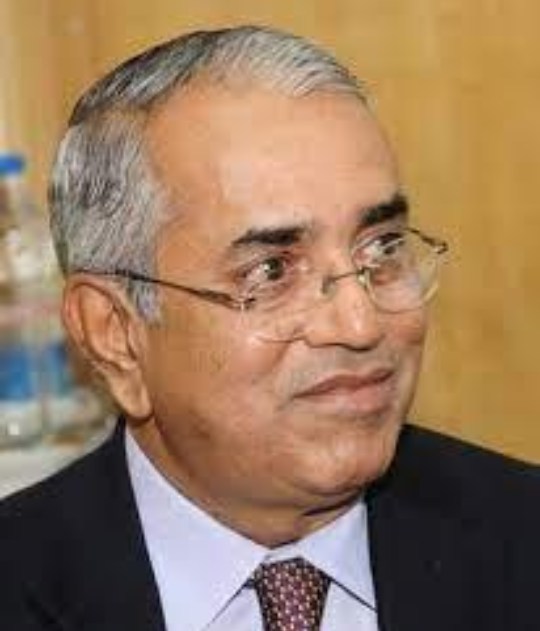
At the outset, I wish to complement Antardhwani for initiating the conversation around tax reforms. It is a laudable gesture and I hope it paves the way for a grassroots movement demanding public accountability in tax matters. The American example, where 80 percent of the population is tax -paying and very conscious about their rights and privileges, can’t be compared with India which grapples with a very different situation and system of taxation. 50 per cent of India’s workforce is directly engaged in agriculture and income tax on agriculture is zero. This reality takes away 50 percent of potential collections out of the equation. Many families out of the non-agricultural populations are engaged in marginal occupations. These small wage earners cannot be made to pay income tax. The cost of collecting taxes from these people would be more than the tax collected.
Our per capita incomes are remarkably low, we are a USD 2000 per year per capita income country, a poor contrast to US which talks of USD 60,000 per year per capita income. The respective figures for European countries are anywhere between USD 30,000 to USD 80,000. For the people of Western countries, tax paying is as easy as drinking water. They earn good money and no qualms sharing a small portion with the government. In sharp contrast, India has a miniscule number of tax payers. However, a tiny percentage of Indians earn much more than the USD 2000 per year. They are the ones who are subjected to income tax. The rest pay income tax which varies based on the level of consumption – people who buy only basic necessities pay accordingly, while people staying in palatial houses and owning fancy cars end up paying more. In India, whether you are a tax payer or not, you have the fundamental right to question the government’s actions by constitutional law. If we take the stance that tax payers alone have a right to question, that by that logic, those paying more tax will expect a better say compared to those who pay less tax. We should not introduce this inequity into the current debate.
There was a mention in the course of the conversation of ‘non-farmers’ investing in farmlands as a tax avoidance strategy. This is a growing phenomenon of the last two decades. There is a good case for addressing this avenue by not exempting all areas of agriculture from income tax. We must arrive at an effective formula which taxes income that exceeds a certain area of land or a certain value of agricultural produce. The blanket exemption was for farmers below poverty line, not for non-farmers profiting by way of land. We must understand the history behind land’s supreme importance as a source of income. In the olden times, land was the principal source of income, which is why we have such elaborate land records that assess how much income is generated for every plot of land owned. The king was entitled to 1/6 th of every landowner’s produce.
On the point of local bodies getting a miniscule amount of tax collections, our constitution provides that Centre and State get the lion’s share. There is some historical background and economic justification to this seemingly lopsided arrangement. A tax is more efficiently collected by somebody far away from you. Proximity in this case does not evoke the same fear that polarity causes. Hence, local governments are generally less efficient at tax collections. That few people pay tax does not mean only few people are able to pay tax. A lot of people help other people to avoid paying tax. The tax system needs to be revamped in a big way to avoid the loopholes that allow for tax avoidance. In the earlier days, we had eleven slabs of taxation, today we have only four slabs. Even then, loopholes prevail. A large number of corporate exemptions must be done away with. As it is, corporate taxation rates are very low in India.
Talking of the tax to GDP ratio, it is 10 percent in the case of central government, an average of 7 percent in the case of state governments. First and foremost, there is an urgent need to widen the tax base such that more people are taxed. Secondly, more taxes should come from direct taxation and thirdly, the tax rates should be simplified and the loopholes plugged. Indirect tax collections will improve and the glaring evasion will be arrested only of we move towards digital currency and disallow cash transactions. In fact, all the efficiencies that we have seen in tax systems till date have all been made possible due to digital adoption. If expenditure at every point can be digitised, then indirect tax collections will improve by leaps and bounds. Most countries however prefer direct taxation, as it is directly proportionate to the tax payer’s income. Tax to GDP ratio must improve drastically to be able to provide the services that rural and urban areas of India need. The most advanced countries, this ratio is as high as 40. For India, this ratio is only 17, even after combining direct and indirect taxation.
“Abolishing income tax is not a difficult proposition, but it will have to continue to keep the whole machinery around it running; in other words, it will continue only to keep the army of tax officers employed.”
K R Balasubramanyam

We should raise an elementary question: why are taxes going down? The answer lies in our rising expenditures. During Covid times, where corporates took a salary cut due to impacted revenues, but government officials and employees got a raise. They were totally secluded from the Covid impact. Within the government space, there was no corelation between revenue and expenditure. The fall in the former did not curtail the latter, like it did for the industry. In a critical area like health, I can understand the justification of expenditure but not in other areas. Government officials have no experience of slowdown; they adopt a textbook approach to it. I will share an anecdote which has relevant to our discussion. This is regarding the Gandhinagar area which has four government schools in close proximity. One of the school only had 22 children and 12 teachers. So, it was decided to merge the four to build a robust institution imparting quality education. When the teachers of these schools approached the local MLA, who overruled the decision to merge the schools in favour of status quo. This episode reminds us of the fact that schools in India are often run for teachers, not students. Similarly, government hospitals are being run for employing doctors, not treating patients. Abolishing income tax is not a difficult proposition, but it will have to continue to keep the whole machinery around it running; in other words, it will continue only to keep the army of tax officers employed.
In Kerala, the first preference of any family, rich or poor, is the nearby government school. The second choice is a government school in another area. The private schools are the last resort. The reason for this order of preference lies in an inflexible rule imposed by the state: the ratio of student to teacher needs to 30:1. If the strength of students falls to 29, the teacher is transferred. So, it is in the teacher’s interest to teach well and keep students and their parents happy. This model can’t work in Karnataka as local authorities fear teachers will conspire against them the moment it is imposed.
Sajjan Raj Mehta

We are celebrating India’s 75 th year of independence and yet grappling with basic issues like water, roads and electricity. Every government representative, every municipal official, every politician, every journalist, and every activist should be made answerable and accountable. At the same time, every citizen should become aware how the tax money is being used or disbursed. The trader industry is the mirror of the Indian economy. Traders also deserve significant GST exemptions to serve the community better. During the Covid peak, the trading community was at the forefront of offering help to impacted families. Till date, neither the union government nor the state government has released a single penny by way of GST relief or exemption. GST was implemented in a haste, with scores of notifications since the time it was incepted. Traders are today forced to engage the services of a chartered accountant only to help them deal with GST formalities. How can the traders survive amid the difficult times that the pandemic has thrust on us? I urge the government to do away with any kind of IT and GST audit for turnover below Rs 10 crore. Else, their survival in a city like Bangalore is not possible. Traders deserves a fair deal, and all cumbersome and bureaucratic laws must be done away with to help them focus on their core business.
Surya Prakash B S
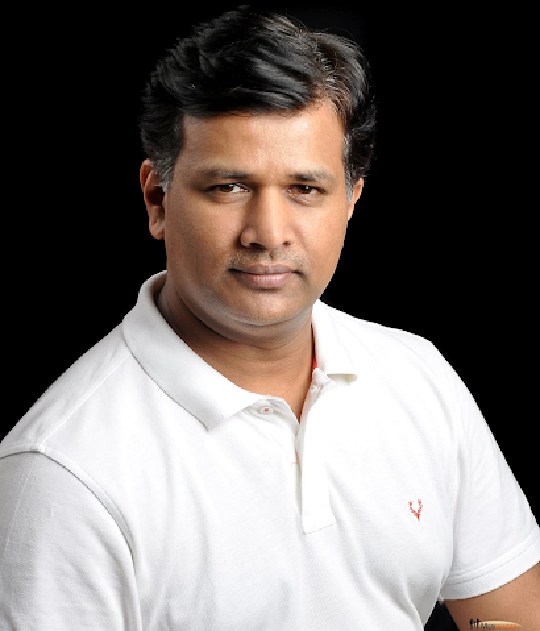
The moot point is that the government is right by default, so are its policies pertaining to taxation. Courts don’t accept any stance that challenges the government on taxation matters, which is quite intriguing for a democratic nation like India. Bad taxation is passed by law without being questioned. It is indeed surprising that India announces tax rate revisions, new impositions, or change in rules through the budget. All concerns raised against the CBDT are necessarily ruled in favour of the CBDT. Any measure on tax should ideally be adopted after due consultation and deliberation with noted experts and public representatives. The government does invite suggestions from the public, but that does little to prevent taxation from being a political issue as Ashwin Mahesh rightly pointed out. There is an urgent need to charge for services such that tax is not imposed in a lopsided manner, but across the spectrum. Instead of imposing taxes, we can charge for services which will help resolve the challenges that proximity to the tax payer pose. I am not in favour of abolishing income tax as history has shown us that transaction tax is not very effective at tax collections. Income tax rates can certainly be lowered. Widening of the tax base is also a prudent strategy aimed at better tax collections.
Dr. Ashok R Patil
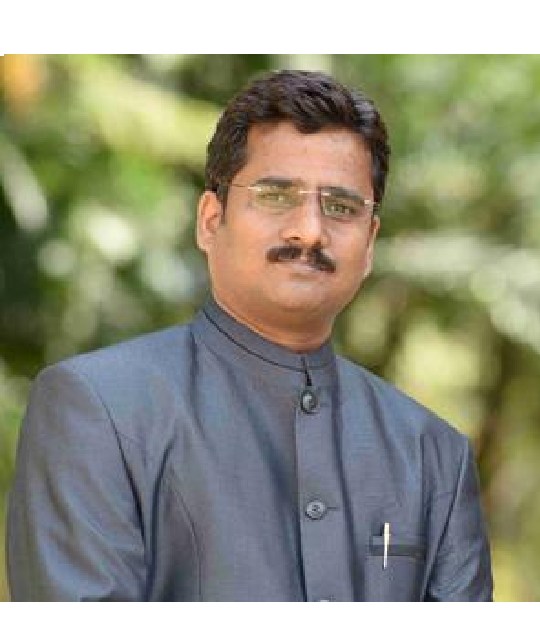
Our consumer forums and bodies are weak compared to developed countries where these entitles are self- sustained. In India, all consumer forums depend on government funding. There are two challenges facing us: one concerns about how to make the government accountable for its tax policies and disbursement, and the other is about how to ensure that the affluent tax evaders are penalised and made to pay taxes due from them. By law, a consumer protection body can file a complaint against any erring service provider only when there is a consideration. In the case of complaints against the government regarding service in exchange of tax imposed, tax is not considered as a consideration, unlike water and electricity services. There was an instance of an ESI hospital seeking refuge in the argument that they are part of the government and hence can’t be held accountable for any alleged negligence on their part. The National Commission ruled that insurance being a paid service is a valid consideration and hence ESI is accountable for providing the service to the best of their ability. Another glaring issue is about the informal arrangements that thrive in a buy-sell situation. When consumers demand a receipt of the payment, they are told to shell out more money, which is why they settle for the transaction without securing a bill to that effect. Most welfare legislations have a poor implementation record in India. Most government departments make a hue and cry over a perennial shortage of staff, while being seeped in corruption. Given this bleak scenario, the welfare scheme hardly reaches the end-user for whom it was conceived in the first place. A couple of statements by the Finance Minister acknowledged the fact that the perceptions of fairness suffer because salaried class are forced to pay income tax disproportionately while the self-employed manage to get away by paying minimal taxes. Ditto for lawyers, doctors, and coaching centres who enjoy service tax exemptions. If we touch upon these key issues, we can significantly improve the taxation system.
Veda Venkatesh
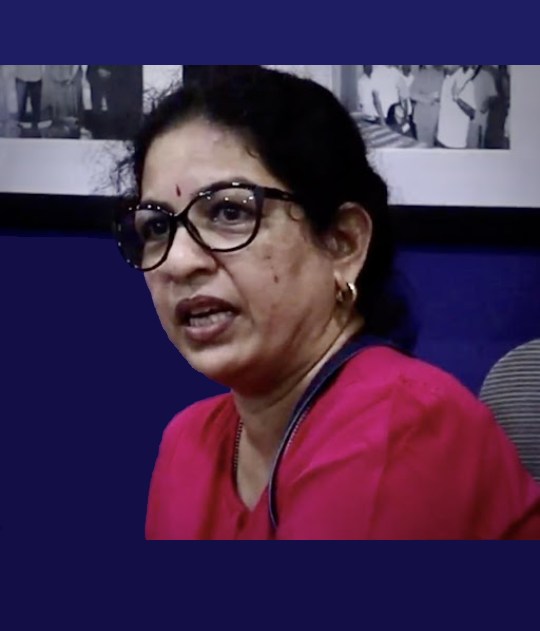
Honestly, Whitefield Rising has not come to a stage of tax advocacy as we are still fighting for basic services like pavements, roads, water, and sewage. Most of the other bigger communities are self-sufficient in most respects including sourcing tanker water, garbage disposal, rain water harvesting and the like. So, they avail of very minimal public services. Hence, people have not felt a real need to demand accountability from the local government for the taxes they shell out. Yet the fact remains that most communities are deprived of even the basic services. Given the poor road connectivity, an area like Whitefield is totally cut off from the city’s mainstream. The water we drink is of a very poor quality as the lakes that supply it is invariably contaminated with sewage. What hurts most for the common citizen is the disparity between different parts of the same city. Unlike most other areas, Sadashiv Nagar is so well maintained (even with the poor municipal taxes collected) that it doesn’t feel like it is part of the Bangalore that fights the most basic issues day in and day out. We must collectively work towards eliminating this disparity.
II. KEY REFERENCE POINTS
- Direct tax collection (individual/Corporate) accounts for 50% of India’s total tax collection – Rs 14.10 lakh crore out of Rs 27.07 lakh crore (FY 2021-22)
- 46 lakh tax payers disclosed income above 10 lakh per annum; 3.16 lakh disclosed income above Rs 50 lakh and 8600 above Rs 5 crore (FY 2018-19). Ironically enough, these sincere and conscientious taxpayers have no say whatsoever in the manner and mechanism of public money spends
- Wealthy farmers growing coffee, tea, areca nut, and rubber and earning humongous incomes pay no tax, whereas a salaried person of limited means pays up to 30% tax.
- Simply taxing 4% rich farmers (who own over four hectares of land and hold over 20% of India’s agricultural income) at an average 30% can help amass a whopping Rs 25,000 crore.
- Does a person who earns income but pays no tax have any right to raise questions on how the nation spends public money or formulates its taxations policies?
III. SUMMARY OF POINTS RAISED
Multitude of Speakers, Unanimity of VoiceAll speakers including former bureaucrats, journalists, trade representatives, tax, and legal experts were unanimous on the following:
- Taxpayers must be made key stakeholders of the decision making on public spending and accountability.
- Majority of people don’t pay income tax in India, so public representatives hardly care about the welfare of a miniscule population of taxpayers.
- Tax money is often spent on extremely unproductive initiatives without public consensus. Public consultation before imposing new tax rates or earmarking funds for public spending must be made mandatory.
- Taxpayers must be entitled to privileges (social security and pension).
- There should be backward adjustment of losses for honest taxpayers facing distress arising out of unforeseen circumstances and upheavals.
- There is an imminent need to constitute a national body of taxpayers that will advise and monitor proper utilization of public money.
- Tax laws needs to be simplified, ditto for the process of paying taxes. Tax laws must be amended to plug rampant tax evasion.
- More and more people should be encouraged to pay tax to make taxpayers a majority group and a credible voice for demanding public accountability.
- Local governments/civic bodies are invariably starved of tax money. They don’t have enough funds to carry out a wide array of civic jobs.
- The focus of taxation should be on imposing a wide-scale transaction tax in conjunction with direct taxes
- It is high time we ushered in capital tax reforms and separate regulation from service delivery for effecting better governance.
- Corporate tax is minimal in India vis-à-vis individual taxation. This is a major flaw which needs to be corrected by withdrawing the slew of corporate exemptions.
- Tax exemption on agricultural income should be withdrawn with immediate effect as it is hurting India’s economic growth.
IV. Other suggestions (raised by Antardhwani across different forums)
- There is an urgent need to bring agricultural income within the ambit of taxation given the fact that many affluent farmers are availing of subsidies they don’t need, while many ‘non-agriculturists’ are abusing the exemption through colossal tax-free wealth generation, converting their black money into white. Countless rich farmers growing areacnut, coconut, betel nut, tea, coffee and the like have amassed massive wealth without having to pay a single rupee of tax, and without spending any money whatsoever for community development or improving the living conditions of the labourers working on their farms.
- Rich farmers and non-agriculturists get fertilizer at reduced rates, a subsidy that costs the government about $10 billion a year nationally, more than it spends on healthcare or higher education. They also get cheaper electricity than factories or homes. This subsidy abuse must be weeded out at the earliest.
- The 2014 Tax Administration Reforms Commission (TARC) report had righty highlighted the need for a “cross-subsidy” approach: of keeping small farmers out of tax purview, while taxing large farmers and closing a popular escape route for money laundering. The incremental tax collection can help the government lower the debt burden to construct roads, ports, power plants and other public projects. The TARC had recommended that farmers with agricultural income Rs 50 lakh-plus should pay income tax.
- The income tax threshold is only Rs 5 lakh which needlessly exempts the average Indian earning Rs 1.4 lakh a year from paying any income tax. The tax base needs to be expanded to include more people within the ambit, people who are not averse to pay tax if asked to, as is otherwise assumed.
- 1 crore individuals disclosed income between Rs. 5 and 10 lacs
- 1 crore individuals disclosed income between Rs. 5 and 10 lacs
- Only 46 lakh individuals have disclosed annual income above Rs 10 lakh
- Only 8600 individuals have declared annual income above Rs 5 crore
- Only 2200 doctors, CAs, lawyers and other professionals have declared annual income above Rs 1 crore
- Most people from the unorganized or the informal sector that includes shop owners, traders, small businesses and the self-employed do not file tax returns despite having incomes that qualify for the same. Every business owner or service provider, small or big, has to be brought under the ambit of income tax – whether an auto driver, tour operator, corner shop, shopping mall, electrician, builder, home-based manufacturer, or large industrialist.
- India’s income tax base will be adequately widened if the income tax exemption threshold is reduced and kept unchanged over several years; this strategy will ease the burden on the 3% working Indians who are harassed and penalized for every transaction – whether for work or play.
A collective endorsement of the above suggestions from common citizens and authorities alike will pave the way for needful tax reforms aimed at improving compliance, expanding tax base, and arresting the widespread tax evasion and avoidance.